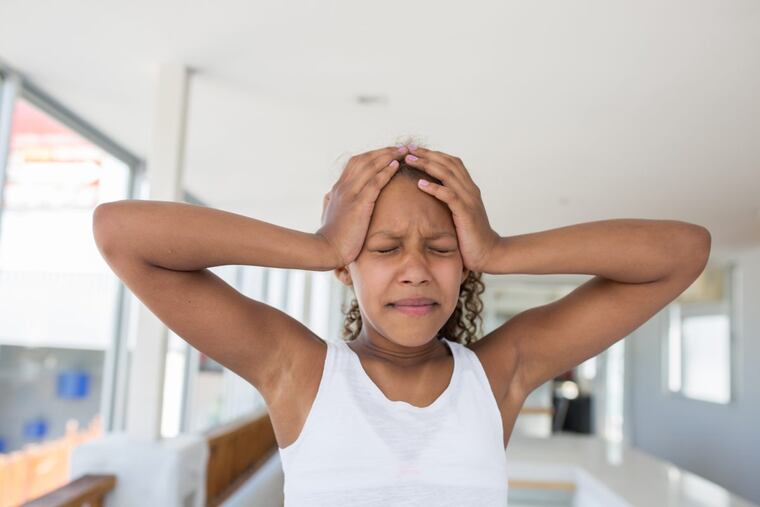Can your teen's stress lead to an anxiety disorder?
Anxiety is often seen as a less serious problem than other mental-health issues. Nothing could be further from the truth.

Grades, sports, friends, SATs, ACTs, SAT subject tests, college applications, personal statements, Facebook, Snapchat, parents, teachers. Sorry if I stressed you, but this is a day in the lives of many of our teenagers.
Nervous, worried, concerned, uneasy — there's no shortage of words synonymous with anxiety. No wonder it is a universal feeling. Evolutionarily speaking, anxiety has been important in the fight-or-flight response. And even nowadays, it can alert us to unsafe situations. But more often than not, it's not so helpful.
Anxiety disorders affect one in eight children. These may include generalized anxiety disorder, obsessive-compulsive disorder, panic disorder, post-traumatic stress disorder, social anxiety disorder, and other specific phobias. Anxiety disorders may be triggered by a stressful life event such as the death of a loved one or a move. They often occur with other problems, including depression, attention-deficit/hyperactivity disorder and eating disorders. Anxiety is often seen as a less serious problem, but nothing could be further from the truth.
More teenagers are being hospitalized for being suicidal, and it is likely due to being stressed out. Hospital admissions for suicidality in teenagers increased from 0.67 percent in 2008 to 1.79 percent in 2015, according to a recent analysis. The admissions occurred at the highest rates in the fall, when teenagers are back to school, which is known to be a stressful transition. Significant increases were noted in all age groups, but were higher among older children: half of the more than 118,000 hospital admissions for suicidality were among 15- to 17-year-olds as compared with 37 percent among 12- to 14-year-olds and 13 percent among 5- to 11- year-olds.
When does anxiety cross the line from a phase to a disorder? A phase is temporary and usually harmless. A disorder is excessive and cannot be controlled. Children and teenagers who suffer from anxiety disorders experience fear, nervousness and shyness, and they start avoiding places and activities. That's the key to these disorders: avoidance behavior.
The names of the disorders reflect the symptoms. Individuals with generalized anxiety disorder feel irritable, easily fatigued, unable to concentrate, and unable to control their worries throughout the day; they also have difficulty sleeping. People with panic disorder have recurrent periods of intense fear that may include increased heart rate, sweating, trembling, sensations of shortness of breath, and feelings of impending doom. People with social anxiety disorder have an intense fear of social or performance situations; they expect to feel embarrassed, judged, rejected, or fearful of offending others.
Worried about your child having an anxiety disorder? Parents' first stop should be their child's primary-care provider. Some physical health conditions, such as an overactive thyroid or low blood sugar, as well as taking certain medications, can imitate or worsen an anxiety disorder. A thorough mental-health evaluation by a psychiatrist or a psychologist is often the second step.
Anxiety disorders are treatable. In research studies, patients treated with a combination of medication and psychotherapy had better outcomes than those treated with only one or the other. Medication such as antidepressants often help relieve the symptoms. Medication can be prescribed only by a medical doctor (such as a psychiatrist or a primary-care provider).
Cognitive-behavioral therapy is believed to be the most effective therapy for anxiety disorders. CBT teaches a person different ways of thinking, behaving, and reacting to anxiety-producing and fearful situations. CBT can also help people learn and practice social skills, which is vital for treating social anxiety disorder.
My advice: Avoid telling your teens that their stress is normal, and avoid assuming that they will be able to handle it. Avoid downplaying your teens' worries. Avoid saying to your teens, "When I was your age…" because times have changed. But there's no avoiding this: You need to open up the conversation with them. Give them the support that they need. "Don't worry, be happy" is a fine goal to work toward.